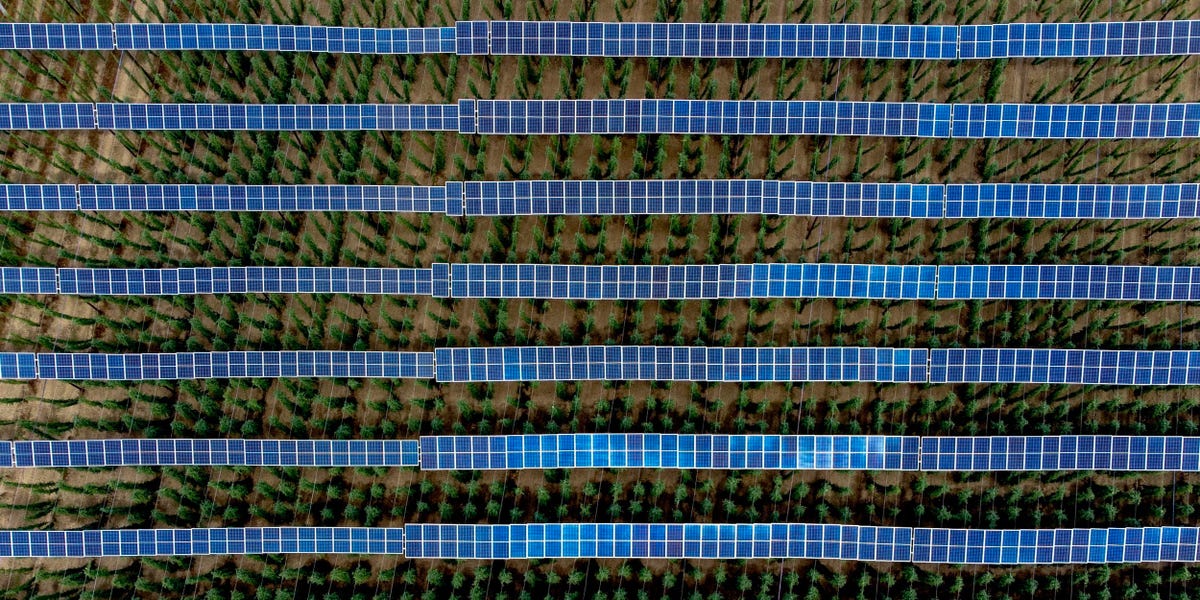Can’t they sell the surplus to neighbouring countries?
In fact we have to pay the neighboring countries to take the excess power in order to lighten the load on the grid. Switzerland and Austria will then use the power to pump up water to store the energy.
In fact we have to pay the neighboring countries to take the excess power in order to lighten the load on the grid. Switzerland and Austria will then use the power to pump up water to store the energy.
Why is Germany building a ton of coal plants then?
Negative pricing just means power isn’t needed or wanted at that time of day. During the winter when it’s not sunny, power will still be needed.
Does solar in summer meet their energy demands? I was under the impression that it didn’t.
Negative pricing from solar occurs mid-day. It doesn’t mean all other power plants are turned off. Some power like nuclear or coal have thermal inertia, and so they aren’t worth trying to shut off for a few hours - it would cost them more to shut down and heat back up than to just pay the negative price to stay on. So this negative pricing just indicates that more solar is online than ever before, and the market is ripe for diversification of energy sources (or storage) to take advantage of price differentials. If other sources phase out, solar may meet the full summer demand for a few hours each day. Then eventually with batteries solar can meet the full demand for a few months straight. But it will never meet winter demands, especially with electrified heating.
We’re not.
Bringing back online != Building a ton
That sounds like a good problem to have.
Next step is get those power storage systems in to take advantage of negative pricingBuy this battery, and the power company will pay you to charge it. Problem?
That already happens on large scales. E.g. aluminium smelters will sync their smelters to the grid price.
Sell it to other EU countries. Why is this so hard?
This is happening, to a degree, in most of Europe. Storage is the answer as described in the article. Unfortunately politics are not proactive, you need to break the system before something happens… and now the system is broken, yeah!!!
Most power is produced in the morning to early afternoon. Most power is used in the evening. We just don’t have that much storage yet.
It’s hard to say we’re wasting energy though. There’s a whole lot more solar power than what we’re capturing, after all.
Also, It’s no easy feat to sell lots of electricity far away.
It can be done and is being done, but it’s not simple. If it were, Sahara would be covered in solar panels supplying electricity to Europe and Africa.
Thanks for giving us a bank’s perspective, Business Insider.
This statement brought to you by Greed® and Capitalism™
“people are no longer paying for things they don’t need! this is a disaster!”
Can’t it just be transmitted over to France, Austria, Poland and Denmark?
OH NO! IT’S WORKING! Someone think of the power companies!
My rural electric coop limits the amount they will pay for end user generated solar power per month. They will never let the bill zero out or be negative.
As long as that means there’s a minimum fee that’s going to maintain the grid, I think I’m okay with electric bills not going negative.
I was worried when Germany shit down their nuclear reactors but it’s great news to hear they’re embracing solar hard
Yeah. Someone’s ass is going to be badly irradiated.
I shit down my reactor every time solar goes hard too.
Yo, businessinsider, suck my dick.
When nuclear power was first adopted, it was championed as being “too cheap to meter”.
That was never going to happen, and society will allways need people maintaining power infrastructure.
So there should be two charges on your power bill, one for power usage and a static one for use of power infrastructure.
That split system is how it works where I live. Obviously it’s quite difficult to have competition for the infrastructure. So I can choose who delivers power (well, I mean it comes from the same grid. But different companies buying power from the same spot market charge you different amounts 🤷) but the infrastructure is a monopoly. Not only do we pay a fixed fee for the infrastructure, but also a transfer fee (and taxes, and also taxes on the taxes)
So in the end I pay more for the infrastructure part than the power consumption.
Why Are they talking like it’s a bad thing?
Germany’s political economic system is capitalist. In order for that type of system to exist there must be a surplus that can be extracted in the form of profit. If the cost of energy is negative (or even low) there is no surplus profit and thus the system falls apart.
this is why the current gov in sweden is trying to run wind mills into the ground. got rid of the solar panel subsidiary. and has been campaigning hard to building nuclear power plants under the guise of ‘clean and stable energy that can be produced on demand.’ - and it will somehow lower electricity prices despite the country producing a surplus and prices remain high because the surplus is sold to the rest of europe at a premium and to increase demand locally and thus prices for a double tap on the market.
but sure. let’s build more nuclear. that will totally fix the energy prices and satiate demand by relying on imported fuel based power instead of free and infinite power produced by nature itself. i’m sure.
Because it is a bad thing for the financial interests that Business Insider serves.
In isolation, it’s very obviously a bad thing, because it makes solar less profitable and might slow down the switch to renewables.
In a wider context, it can still be seen as a god thing as it means there has been a significant pivot to solar already and luckily it’s also a very solvable problem. There just needs to be more energy storage.
Won’t energy storage help drive prices back up too?
It’s a sign of a grid stability issue. A power grid needs to balance input, output and losses. An imbalance in either direction is bad.
A negative price means the grid is worried about a collapse. They are willing to pay sinks to come online NOW, or for production to go offline.
The solution isn’t less renewables however! It’s more storage, and better smarts on the grid. Most grids are poorly designed for renewables, and their loads characteristics. That needs to change rapidly.
This is great! No shortage of electricity in Germany thanks to green energy!
this is like a bitcoin miner’s wet dream.
I’d say that this a weird way to put it. We just have too few other sustainable plants - mainly wind - in our mix.
As predicted. The EU policies on solar will drive the same excess in every country. Germany is also going for hydrogen with a large hydrogen network already built and excess electricity would be a great source of power for green hydrogen production (which is vehemently inefficient, but if it’s free…)
One of the nuke plants I work at put in a hydrogen electrolyzer two years ago for this reason, and they are doubling it’s size next year because it worked so well. Their “problem” is different than solar. Nukes constantly put it the same amount of power, so they feed the excess into the electrolyzer when demand is low, but it’s basically the same idea. Electrolysis id inefficient, but if you’re producing more energy than you can feed into the grid you may as well do something useful with it.
Same reason I think carbon capture is worth looking into. It should not be a primary solution. I know some fossil fuel groups are behind it today. But in the not too distant future we are going to have excess green energy. Capturing carbon is worth seeing if we can scale to the point of being one of our tools. People are quick to scoff at the idea. Much like I’ve seen with hydrogen. But I’d rather try many options to reverse change that might not be perfect. Instead of hoping we transition power sources and that alone was enough.
The 2 go well together. Hydrocarbons are an excellent carbon store. Carbon also stabilises the hydrogen, so it doesn’t leak through the walls of your containers. Lastly, it can actually to replace oil in things like plastic production.
In a pinch, you can also burn the result, to get energy back.











